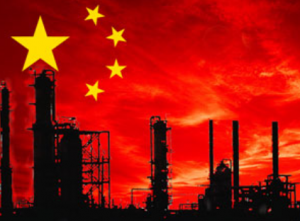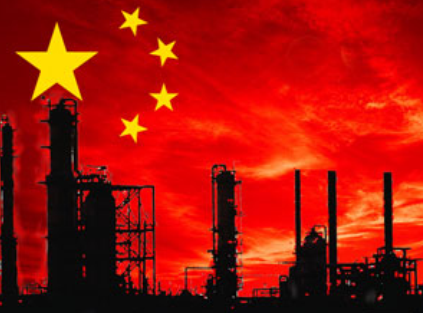Market report: Chemical Industry in China
After textiles and machinery, the chemical industry is the third largest in China and accounted for nearly 10% of the nation’s GDP in 2013. Due to the massive globalization, market reports see continuous and growing demand for chemical products in China.
However, despite promising growth, chemical industry in China has been dependent on imports since a decade.
China will be the world largest chemical market in the world

The demand for chemicals products is expected to remain undiminished for this year. For instance, according to the market report from the Chemical Market Associates Inc, demand for plastic is expected to reach nearly 53 million tons this year, and 75 million tons by 2020, in China. This is 50% more than five years ago. At present, China accounts for more than half of Asia’s chemicals sales.
Furthermore, the China’s chemical market value reached US$1,080 billion last year and should continue to pick up in the coming years. Actually, chemical experts estimate that this number will double in five years making China the world largest chemicals market before the United States.
In term of breakdown, in 2013, fine chemicals are the first segment counting for 30% of chemical industry in China, while paints, coating and advanced polymer count for 15% to 20% each.
From 2008 to 2013, chemical revenues grew 20% year over year, making a profitable sector.
The growing demand for chemical products is the result of the present economic state. Indeed, most economic sectors rely on chemicals goods, and in particular construction and car manufacturing, sectors which have been through significant boom over the past ten years. Chemicals industry in China is also vital in the production of photovoltaic, wind turbines but also to consumer goods such as thicken shampoo.
In term of main players, the landscape of the industry has not changed much since decades. State owned companies remain among the main players as chemical industry is key sector of China and because national security reason, the Chinese government is not willing to open it much to foreign investors (except though joint-venture). Sinopec and PetroChina are the first two players. ChemChina and Sinochem Group are also among the biggest local chemical companies benefiting unlimited budgets to pursue their strategies and international expansion (numerous FDI and buyouts in the past five years).
Still, the chemical industry in China is presently facing a deficit as percentage demand.
Current and future issue for chemical industry in China
Raw materials
The chemical industry is suffering from a domestic shortage of raw materials which are essential to produce its products. Indeed, China heavily depend on raw material imports, and as matter of facts, high price volatility is one its hurdles. Coupled to this, are the aggressive pricing that chemicals companies are facing from foreign competitors.
Economic system
Another issue concerns the economic system itself. One of the key points of the 12th Five-Year plan is to reframe the industry, and in particular to strengthen the competition among Chinese companies. Although the chemical industry in China has been protected for a while by the government, benefiting unlimited budgets funds, chemical companies must now face fierce competition. The 12th Five-Year plan also points out the necessity to reduce the environmental degradation and increase the nation’s self-sufficiency in chemicals.
Political system
The fate of chemical companies heavily depends not only on Chinese government policy at national level, but also at provincial and local levels. Often, this economic sector is characterized as being complex and opaque and with the leaders corrupted. State Owned Enterprises (SOEs) also have easier access to capital, direct subsidies and to preferential loans than private enterprises. Intellectual property is also growing concern for both states owned companies and foreign chemicals companies.
Future opportunities on chemical industry in China
Although the chemical industry is facing several issues, opportunities are available to cease. Firstly, and in accordance with the 12th Five-Year plan, the Chinese government aims to globalize its chemicals companies abroad. In addition, China foreign direct investments for the chemical industry have been significant over the past five years. Therefore, there is need to evaluate target companies for potential joint venture and acquisition both within Mainland China and abroad. All major global players (Bayer, Dow Chemical, and AkzoNobel) have entered China to expand their activities and open R&D center (Dutch firm DSM in Shanghai).
The chemical industry is also characterized by a high need to innovate. Companies that take the necessary steps to invest in R&D will have an advantage as the Chinese government is encouraging innovation as a way to modernize its economy and maintain growth. Any R&D center created in less developed regions is even more encouraged and supported financially by local authorities. As matter of fact, a wait-and-see strategy will likely be unsuccessful.
There also opportunities in managing teams within this industry. Chemical companies have been running leadership and talent programs since several years, in order to retain their employees and to position them for future growth and leadership position. This is also a way to avoid intellectual property leakage from their employees when leaving the company. Nevertheless, as China has taken serious measures regarding the IP leakage, doing business in China will become easier.
See more market report in China _ JX Paulin





